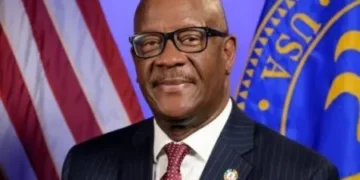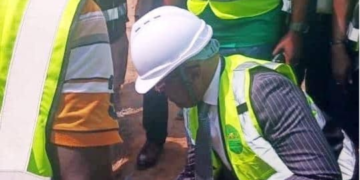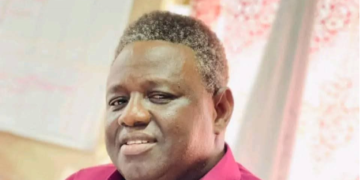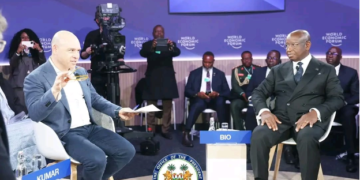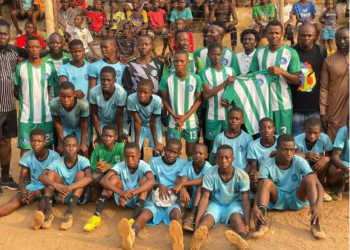By: Aaron Bundu Lahai-Head of Media & Public Relations
A two-day conference on Gender-Based Violence (GBV) organized in commemoration of sixteen days of activism started on Monday, 2nd December 2024, at the Catco Hotel Hall, Wilkinson Road, in Freetown on the theme: Ending Violence Against Women and Girls in Sierra Leone. In his keynote address, the Vice President of the Republic of Sierra Leone, Dr. Mohamed Juldeh Jalloh, suggested the setting up of a full-blown forensic laboratory to support investigation on gender-based violence in the country, stressing that he will initiate discussion both at cabinet level and with development partners to support the establishment of the laboratory initiative. He proposed the identification of potential and viable decentralization options in the fight against GBV by strengthening the district prosecuting and legal teams to be able to provide legal and support services for survivors and deal with the perpetrators.
The Honourable Vice President described the theme of the conference as important at the time the country is grappling with many social challenges, including the protection and promotion of the well-being and progress of women, especially young girls. He stated that gender-based violence and healthcare are vital to promoting the well-being and progress of women in society. He disclosed that GBV and healthcare affect the most vulnerable in society; he therefore viewed the 16 days of activism as an opportunity to take stock of the progress made as a country and the additional effort and action needed to support young girls from GBV and access to healthcare services they need.
The Honourable Vice Flashback on the tremendous efforts made by the government since 2018 with regards to healthcare delivery, gender equality, women’s empowerment, and GBV. “Since 2018, our focus on human capital development has placed education, governance reforms, and health at the center of government activities,” says the vice president.
He explained that government focus in health has been maternal and children’s health. He indicated that maternal mortality was one thousand and seven deaths per every one hundred thousand live births in 2018, noting that the death rate has reduced to four hundred and forty-eight maternal mortalities in 2022. He is optimistic that the death rate will be reduced drastically at the time the latest statistics are published. He informed about the investment in the sector, including the recruitment of additional healthcare workers, building additional community healthcare centers across the country, and the expansion of training for healthcare workers.
Vice President Jalloh told the audience that the government is also focusing on women in the educational sector, stating that the heart of the education program is to encourage young girls to enroll in schools. He revealed an increase in the number of girls in schools, noting that the government is proud of the parity between boys and girls in basic and senior schools. He stated that more girls are enrolling in universities to study science courses than boys, attributing it to government intervention in the education sector.
Some of the governance reforms undertaken by the government, according to Vice President Jalloh, include the Sexual Offenses Act amended in 2019, the Sexual and Gender-Based Response Strategy, the integration of sexuality into the education curriculum, the GEWE Act, and the Prohibition of Child Marriage Act 2024, among others. He maintained that the reforms were done to enhance gender equality and promote women’s empowerment.
He noted that hospital management and care are still challenges that need more effort despite the tremendous effort made by the government to improve healthcare delivery in Sierra Leone. The Honourable Vice President shared his perspectives on ways to address gender-based violence and to also position the country’s healthcare delivery system to provide the care needed. One of the perspectives is to take concrete steps to implement policies, he commented. The second perspective shared by the vice president is to scale up the one-stop centers in order to strengthen their effectiveness by providing additional tools and resources to support women. He again suggested a strategic partnership between the government and development partners, especially NGOs, with the focus of decentralizing the fight against gender-based violence.
The Minister of Gender and Children’s Affairs, Dr. Isata Mahoi, said that addressing sexual and gender-based violence required a multi-sectoral approach, noting that no single entity can curb the menace. She stated that the conference presented an opportunity to delve into actionable strategies to address the challenges communities faced. She has flashbacks of the domestic violence cases in recent times, with some relating to deaths while some destroying the future of younger children. She emphasized that ending violence against women is an action everyone must be involved in, adding that there is a need to address it.



